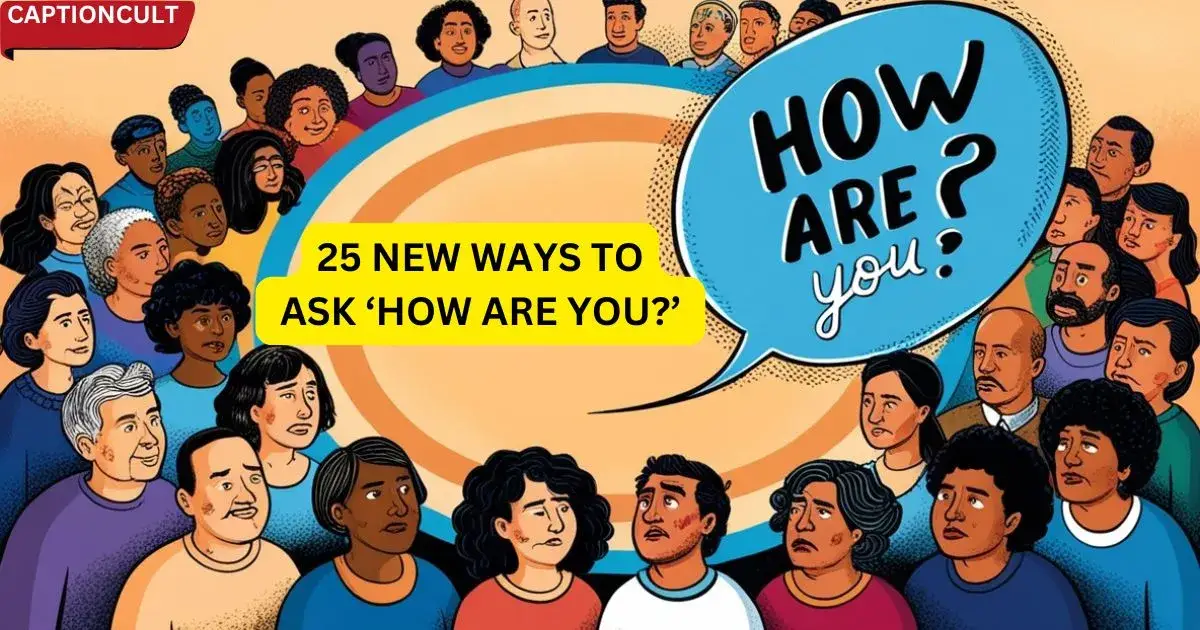In our fast-paced digital world, the simple conversation opener “How are you?” has transformed from a mundane pleasantry to a nuanced communication tool. Funny ways to ask how are you have emerged as a clever strategy to break traditional communication barriers, inject personality, and create genuine connections. Knowing how to adapt your approach based on contextual variability and relational dynamics can elevate your interactions from perfunctory exchanges to meaningful connections.
This article will provide you with 25+ creative, witty, and insightful alternatives to “How are you?,” categorized for different situations and relationships, showing you how to master this common social interaction. We’ll also explore the importance of tone and mood in communication, emphasizing the role of empathy in fostering genuine connections.
Why Communication Matters
Relational dynamics in 2024 demand more than standard, robotic greetings. Humans crave authentic communication that goes beyond surface-level interactions. Conversation openers are no longer just about exchanging pleasantries but about establishing meaningful rapport.
The Power of the “How Are You?” Question
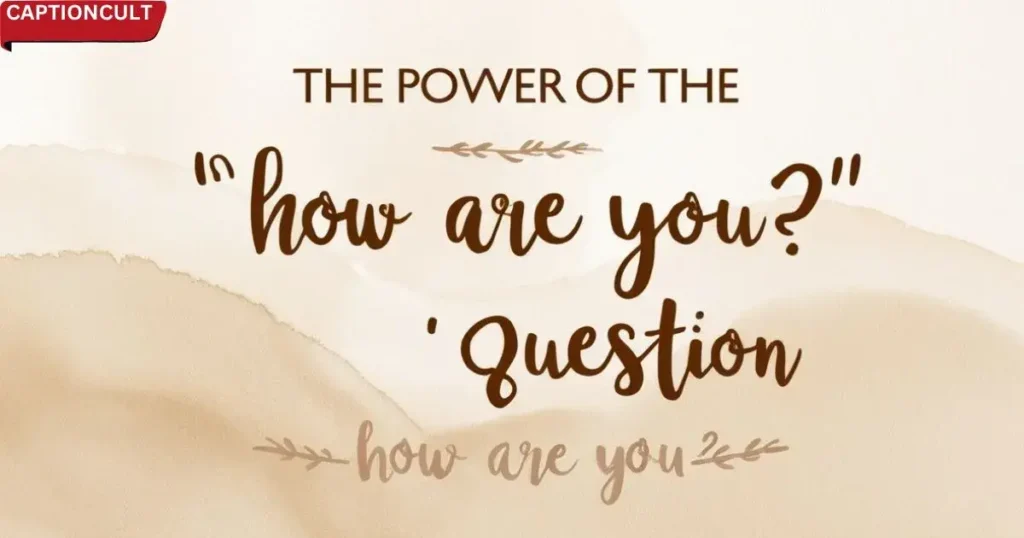
The seemingly innocuous “How are you?” holds surprising power. Its effectiveness hinges on more than just the words themselves; it’s about understanding the underlying semantic entities at play, like tone, context, and personality. A poorly chosen greeting can derail a conversation before it starts, while a well-crafted alternative can open doors to deeper connections. This is particularly important in professional networking, where first impressions often dictate future opportunities. A thoughtful approach reflects your social intelligence and conversation skills.
Casual Ways to Ask “How Are You?”
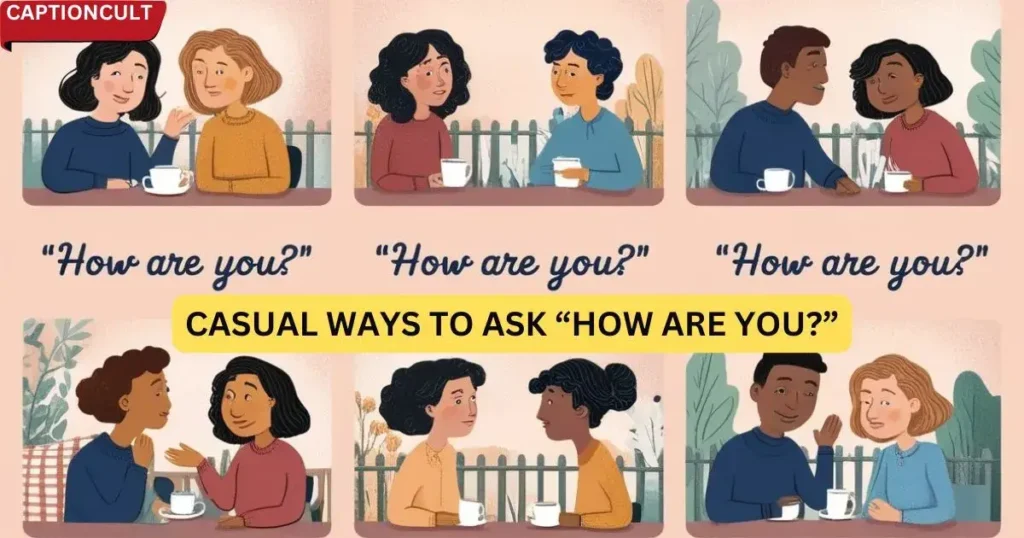
Let’s begin with casual greetings. These are ideal for friends, family, or colleagues with whom you have an established rapport. These phrases allow for a more relaxed and informal tone.
- “What’s been keeping you busy?” – This invites a response beyond a simple “good” or “bad.”
- “What’s the best thing that happened to you today?” – This starts with a positive frame and focuses on a specific good experience.
- “What are you up to these days?” – This is a versatile conversation opener suitable for various contexts, prompting a discussion about daily activities or ongoing projects.
- “Anything exciting on the horizon?” – This is a forward-looking conversation opener focused on plans and aspirations, and often leads to engaging discussions.
- “What’s making you smile today?” – A particularly uplifting alternative, focusing on positive emotions.
- “How’s your week treating you?” – A slightly broader question, suitable for mid-week check-ins.
- “Anything new and exciting happening in your world?” This shows genuine interest in someone’s life outside of work.
- “Any fun plans for the weekend?” This opens a conversation about leisure activities and social plans.
- “How’s your energy levels today?” This approach shows concern about someone’s well-being without being overly intrusive.
- “What’s one thing you’re grateful for today?” This encourages reflection and positive thinking and is a great option for starting a day.
Formal Ways to Ask “How Are You?”
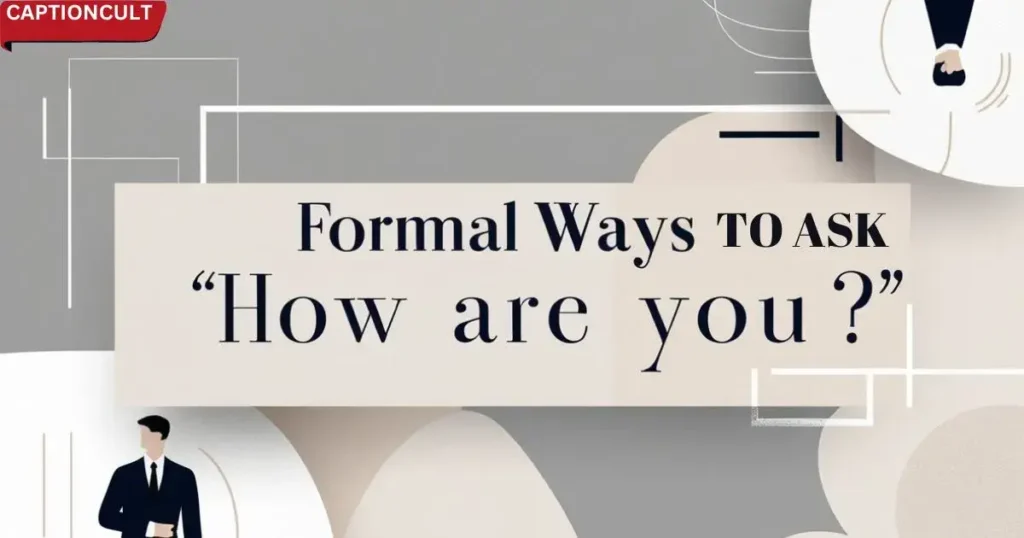
These more formal alternatives are ideal for professional settings or when interacting with someone you don’t know well. They maintain a respectful distance while still showing interest.
- “I hope your week is proceeding well.” – A polite and professional way to express interest in someone’s work and well-being.
- “How are things coming along with [project/task]?” – Directly relating the question to a shared professional context.
- “How’s everything progressing?” – A concise way to inquire about general well-being without excessive familiarity.
- “Is there anything I can help you with today?” – This shows support and a willingness to assist.
- “Are you finding everything manageable?” – This demonstrates concern for workload and stress levels without being overly nosy.
- “I hope everything is going smoothly.” – A reassuring and supportive greeting for a colleague or superior.
- “Is there anything I can support you with?” – A slightly more proactive and supportive approach to asking how things are going, showing a willingness to help.
- “How are you settling into [new role/situation]?” – This is a relevant inquiry when a colleague or acquaintance has recently started a new job, changed roles, or experienced a significant life event. This demonstrates care and genuine interest in their well-being and success.
- “How are you finding the workflow this week?” – This is an ideal question for colleagues within a team-based working environment. The enquiry is both workplace and well-being focused and facilitates a positive conversation flow.
- “Are you feeling comfortable with your workload this week?” This demonstrates a concern for their well-being within the workplace without being too direct or intrusive. This allows them space to respond honestly about their feelings concerning their workload and work-life balance.
Funny Ways to Ask “How Are You?”
These are for when you want to inject some humor into the interaction, but be mindful of your audience and the context. Using funny ways to ask how are you requires careful contextual variability; what works with close friends might not work in a professional setting.
- “What’s the most wild thing that’s happened to you recently?” – This sparks conversation with a focus on amusing anecdotes.
- “Still kicking?” – A playful and casual way to inquire about well-being, suitable for close friends.
- “How’s your week been, besides the usual chaos?” – This acknowledges the common struggles of everyday life while adding a touch of humor.
- “Still alive and well?” – A lighthearted greeting, mostly for people who have a busy life.
- “What’s your icon today?” – This playful question introduces a whimsical element.
- Funny ways to ask how are you might include “What’s the most ridiculous thing you’ve encountered this week?” to elicit humorous stories.
- “Survived another day?” – lighthearted and informal; ideal for friends who understand your sense of humor. Using funny ways to ask how are you can liven up conversations.
- “Are you still functioning?” – Amusing and relatable; appropriate among friends or in informal contexts. Using funny ways to ask how are you is a fun alternative.
- “Is your coffee strong enough to handle your day?” – A humorous and relatable approach that opens a conversational doorway to work-related stress or daily life.
- “You okay? Or do you need a therapy session and a whole pot of coffee?” – this is a great way to ask if someone is alright, with a lighthearted approach.
Empathetic Ways to Ask “How Are You?”
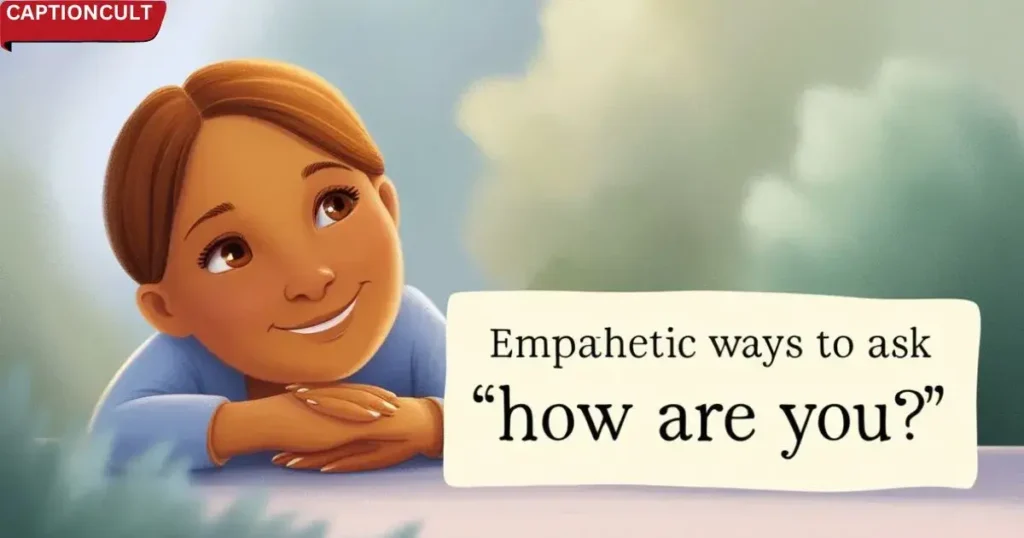
These are for when you want to show genuine concern for someone’s emotional or physical well-being.
- “How are you really feeling?” – This encourages an honest answer, showing empathy and attentiveness.
- “Anything on your mind you’d like to talk about?” – This offers open support and indicates that you’re there to listen.
- “How’s your heart doing?” – This expresses care and attentiveness to emotional well-being.
- “Is there anything weighing on you?” – This suggests a willingness to listen to someone’s troubles.
- “I’ve been thinking about you. How are things?” – This shows that you’ve been mindful of the person and their situation.
Additional Tips for Engaging Conversations
- Active Listening: Pay close attention to the other person’s response. Don’t interrupt or change the subject too quickly. Ask follow-up questions to show that you are engaged in what they are saying.
- Context Matters: Consider your relationship with the person, the setting, and the overall mood. Some funny ways to ask how are you might be inappropriate in formal settings.
- Read the Room: If the person seems stressed or upset, it’s probably best to avoid humor and opt for a more empathetic approach.
- Be Authentic: Your sincerity is crucial. People can tell when you’re being genuine versus simply going through the motions.
FAQ: Mastering Social Greetings
Funny Ways to Ask How Was Your Day?
Inject humor with questions like, “What out of control adventure did you have today?” or “Did you survive the day’s madness?” Keep it light and tailored to your audience.
Funny Ways to Say How Are You?
Spice things up with playful alternatives like “What’s crackin’?” or “Still kickin’?” Remember to gauge your audience’s sense of humor beforehand.
Funny Ways to Ask How Are You Feeling?
Try a humorous approach like, “What’s your emotional weather report today?” or “Feeling more like a unicorn or a grumpy cat?” Choose your humor carefully, considering your relationship with the individual.
How to Ask “How Are You?” in Different Ways Formally?
In formal settings, consider sophisticated inquiries like “How is your week progressing?” or “I trust everything is proceeding well?” Aim for professional yet personal.
What’s Another Way to Ask How’s Your Day?
Instead of “How’s your day?”, ask “What was the highlight of your day?” or “What’s been keeping you busy?”. This offers more specific and engaging responses.
Conclusion: The Evolution of Connection
Funny ways to ask how are you are more than just clever phrases—they’re bridges to deeper human connections. By understanding conversational nuances, we transform simple greetings into meaningful interactions. By utilizing these diverse approaches and understanding the contextual variability involved, you can transform the seemingly mundane “How are you?” into a meaningful gateway to connection and strengthen your networking abilities.
Remember, effective communication is a skill that can be honed, and taking the time to choose your words carefully can have a significant impact on your relationships. Choosing to move beyond the standard “How are you?” demonstrates thoughtfulness, engagement, and a desire for authentic connection. So, go forth and experiment with these new ways to ask how people are doing! Find what works best for your personality and the relationships you have. Experiment with these conversation openers. Find your unique style. Connect genuinely.

This is a passionate author whose work explores the power of language and storytelling. With a keen eye for detail and a commitment to excellence, Julian believes that every word has the potential to create meaning and beauty. “Where Words Find Perfection” is a reflection of his dedication to crafting narratives that resonate deeply with readers.

